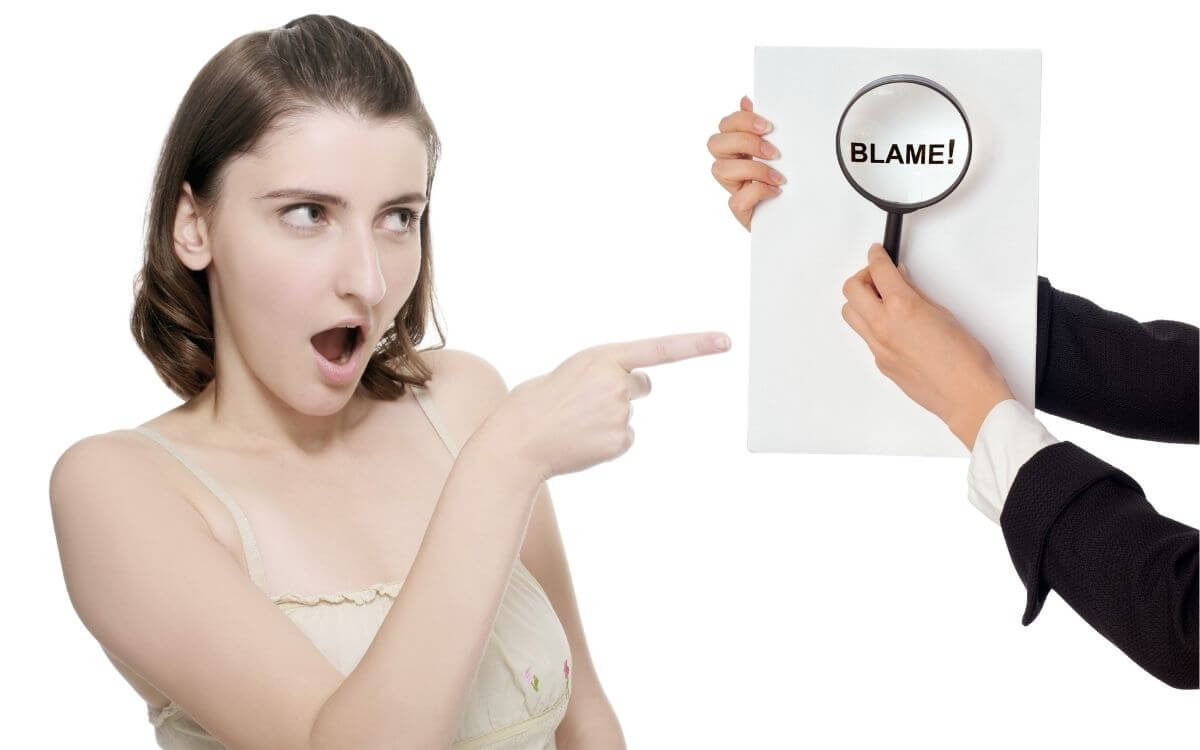How to react when your chronically ill spouse blames you? Chronic illness and its impact on male partners…
A life-long condition!
When your partner falls ill due to a lifelong chronic condition, it rewrites the script of your relationship forever. Often happens that your chronically ill spouse blames you for things despite your best efforts of support.
My wife’s story rewrote my own but I stood by her through countless hardships that caused us both a lot of stress.
Being a spousal caregiver is really rewarding, but can also be challenging when a chronically ill spouse blames you for things that you feel aren’t your fault.
It can be especially stressful when you try to help your partner, but despite your best efforts, you don’t meet their expectations.
Every person is unique, has a different character and ways of dealing with illness.
My wife suffers from two chronic illnesses. She has advanced endometriosis and fibromyalgia.
Both conditions cause daily chronic pain which results in a lot of frustration and anger. When that happens, I am usually on the receiving side of these negative emotions.
In such situations, I experience feelings of being blamed, unheard, alone, upset, frustrated, angry, even resentful.
So, how should you react when your chronically ill spouse blames you?
When a chronic illness enters your marriage you need to remember your vows, communicate and support each other with love.
The stress and demands of caregiving for your spouse higher the odds of you developing your own serious health problems, as well as anxiety, caregiver burnout, and depression.
You have to take care of your needs in order to preserve your own health.
You can’t fix your partner’s health but you can learn not to express your negative emotions in anger, rethinking words before you say them.
Communication is the key.
Being a spousal caregiver…
You wanted or not, if you care for a spouse who suffers from a chronic illness you are a spousal caregiver.
I never associated myself as a caregiver to my wife because, despite her multimorbidity, she can still live a fairly normal life, however, it isn’t filled with sunshine and puppy cuddles.
I’m a trained paramedic who works as a medical caregiver with disabled young adults. This is my profession.
Thinking about being a spousal caregiver never came to my mind as I thought this is not my job, and that supporting my wife is a husbandry duty. However, my work manager and nurse explained to me that I am a spousal caregiver.
Furthermore, being a professional and spousal caregiver meant that I never stop working. My HR team made me realize that I am a caregiver 24/7, and I never stop.
They felt that I must feel very overwhelmed and thought of cutting my hours. the problem is, it’s difficult to balance being a caregiver and spouse in one, let alone working full-time.
Being a spousal caregiver is hard, especially when your chronically ill spouse blames you when things don’t go well.
Your partner usually feels sorry for her behavior afterward but you feel like the damage is already done, your feelings are hurt and even though you accept her apologies, you cannot help but feel a bit resentful at the time.
Being a spousal caregiver is challenging, and can put your marriage in crisis.
My M asked me on four separate occasions to divorce her so I can live my life fully, as she believes that she limits my life, often feeling guilty and grieving for my situation.
She feels like a burden to me and her family. That’s due to the depression caused by her chronic conditions.
Chronic pain and depression!
When your chronically ill spouse blames you it is NOT intentional! You must remember, she goes through hell every single day.
You have to realize that chronic pain and depression are only two components of a vicious cycle that chronic illness and mental health impact one another.
Endometriosis causes chronic pain and that makes your partner feel anxious. Chronic pain and depression work in the same way.
Additionally, fibromyalgia causes chronic pain, making your partner feel anxious and depressed. Again, chronic pain and depression impact one another in the same way as with endometriosis.
For 1-5% of women who have severe stage IV deep infiltrating endometriosis, and that includes my wife, sex can be extremely painful. Women often avoid sexual intercourse which makes their male partner a bit disappointed.
Whenever their husbands try to invite them to have sex, women may feel that they don’t understand them, and any pleads to have sex end in arguments. Your chronically ill spouse blames you for what only comes naturally to men – wanting to have sex with their wife.
Does your depressed partner blame you for everything?
While the symptoms of depression are nobody’s fault, it doesn’t mean you should put up with unpleasant behavior. Find time to speak with your partner about your concerns.
Chronic pain and depression can be a difficult cycle to break, it often reappears.
But if your wife’s chronic condition makes your depressed partner blame you for everything, you probably feel unfairly victimized and tired of being used as an emotional punching bag. It comes so hard to say, but I admit to feeling this way too.
You are not alone in this my friend.
Remember though, it’s not her fault! Depression makes people act out of character.

Chronic illness and OCD.
Understanding chronicity in Obsessive-Compulsive Disorder is hard for someone who doesn’t suffer from it.
I’ve learned how to cope with my wife’s OCD. Her laparoscopic surgery for endometriosis caused her an infection, which in turn, made M develop OCD. Later I’ve learned that chronic illness and OCD are pretty common amongst people who try to take some control over their life.
Unfortunately, it is Obsessive-Compulsive Disorder that controls their life.
OCD is often the reason that your chronically ill spouse blames you for things that aren’t done to her standards.
You are expected to understand your partner’s chronic illness and OCD, and you feel it’s unfair that your spouse doesn’t seem to understand your point of view, as you do NOT suffer from OCD. It can be often frustrating.
OCD belongs to anxiety disorders, and as I already mentioned, chronic conditions make your partner feel anxious. That means panic disorder, general anxiety, and OCD are often the results of chronic illness.
So why chronically ill spouse blames you?
She doesn’t blame you per se, it is the chronic illness and chronic pain that bring negative emotions. I have learned that over a decade of being together with my wife.
I support her not with one but two chronic illnesses! Endometriosis, fibromyalgia, general anxiety, panic disorder, OCD, depression run in a constant cycle impacting one another.
Sure, my M suffers from them all, but I am also in the middle of it.
Remember that for every woman suffering from endometriosis or fibromyalgia there is an army of men who support them.
You may think that your chronically ill spouse blames you for everything, but openly and honestly communicating with your partner will make you both realize that none of you are to blame here, especially not you, her caregiver.
So, whose fault is it? No ones! Blame may sabotage your relationship but learn about your partner’s chronic condition as it will make you realize that you are not responsible for anything.
Sure, if you cause your wife emotional pain, she has every right to blame you, but when all you do is support her, she will, and should, apologize for it.
Blame makes us feel like we’re alone, so next time she’s relaxed, sit together and have a chat. Openly state how it makes you feel. As long you both communicate you will overcome the most challenging situations.
Good luck! Love one another, and remember not to make any permanent decisions for your temporary emotions.
Take care for now!


About Me
Hi, I’m Lucjan! The reason why I decided to create this blog was my beautiful wife, who experienced a lot of pain in life, but also the lack of information about endometriosis and fibromyalgia for men…

Dear Monique, thank you so much for your heartfelt comment. I can truly feel the depth of your love and care for your husband in your words, and I understand how hard it must be for you to navigate such challenging moments.
It’s a beautiful but difficult journey to love someone deeply, especially when their struggles, like chronic depression, weigh so heavily on them—and on you as well. I’ve learned through my own experience with my wife’s health challenges that the mental toll on both partners can be immense. When your husband says things in his lowest moments, I know it hurts deeply, but it’s clear from your words that his love for you runs so strong. It’s that love, as you so beautifully pointed out, that keeps him tethered when everything feels chaotic for him.
Sometimes, the very act of loving someone so fiercely, while carrying their pain, can make things feel even harder. You’re not alone in that feeling. I’ve felt it too, and I think it’s a testament to the strength of your bond that even after the hard moments, you both talk, reconnect, and find peace together.
I want you to know that it’s okay to feel hurt when these things are said, and it’s okay to need your own space and support, too. You’re doing an incredible job holding onto that love, and it’s no small feat to remain grounded while your heart is so invested in someone who is struggling. It sounds like your love for each other is a lifeline for him, and that’s such a powerful thing.
If I could offer any advice, it would be to keep having those open conversations with him, as you’ve been doing. Communication is a huge tool, even when it’s hard to hear certain things. And it’s also important to take care of yourself emotionally and mentally. The more you’re able to stay balanced, the more you can continue being that solid foundation for him, without losing yourself in the process.
You’re absolutely right—you’re not alone in this. What you’re feeling is valid, and you should never blame yourself. You’re doing something amazing by being there for him in such a loving, supportive way.
Thank you for sharing your story. I’m sending you all the strength and warmth for this journey you and your husband are on together.
Lucjan
I can’t thank you enough for sharing your experience.
This helps me so much… My amazing husband, truely The Love of my life, has chronical depression.
When he feels really bad, he blames me from time to time, and says such horrible things…. It hurts me so much. But then we talk and he seems a bit more at peace again.
I sometimes think that part of him is mad for loving me so much. If he didn’t care for me, he could easily … well… Harm himself, live a chaotic, destructive life, but our love keeps him from doing that. He doesn’t want to hurt me.
He really is the best. We are so deeply in love. That’s maybe what makes it even harder, sometimes.
Anyway, knowing I’m not alone and that I shouldn’t blame myself helps a lot.
Thanks!!!!